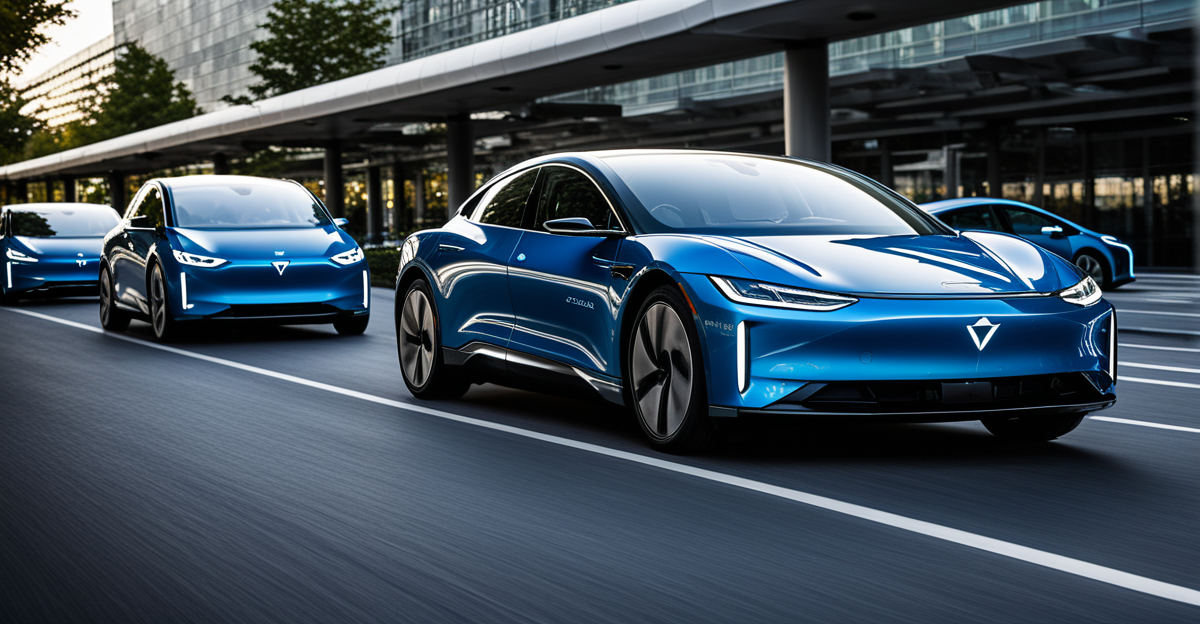Transformative Trends Shaping the Future of Electric Cars
Electric car innovations are propelling a profound transportation revolution. Emerging technologies improve performance, affordability, and accessibility, making electric vehicles future central to sustainable mobility. Battery enhancements extend driving ranges and reduce charging times, addressing two critical consumer concerns.
Market demand is rapidly shifting as buyers prioritize eco-friendly options and cost savings. Consumers expect smarter vehicles with integrated technologies that support convenience and connectivity. This evolution challenges manufacturers to align production with evolving preferences, catalyzing innovation and competition.
Topic to read : How Will UK Automotive Innovations Influence Global Markets?
Industry forecasts predict exponential growth for electric vehicles future adoption. Analysts expect electric car innovations to dominate new car sales within the next decade. Infrastructure expansion and policy support will accelerate this transformation, reinforcing electric vehicles’ role in global transportation systems.
Together, these factors—technology advances, evolving consumer expectations, and robust industry growth—underscore the transformative trends shaping electric cars. As these trends converge, the transportation revolution will intensify, ushering in a new era defined by clean, efficient, and intelligent mobility solutions.
Have you seen this : How Will Brexit Influence the Future of the UK’s Automotive Industry?
Pioneering Technologies Driving Change
Innovations in battery advancements are central to the rapid growth of electric vehicles future use. New battery chemistries and improved energy densities extend vehicle range, while fast-charging technologies reduce downtime significantly. For example, solid-state batteries promise higher capacity and enhanced safety over traditional lithium-ion types, pushing the boundaries of EV innovation.
Autonomous vehicles also play a crucial role in shaping the transportation revolution. Integration of advanced sensor arrays, machine learning, and AI enables self-driving capabilities that optimize route efficiency and enhance safety. These technologies not only improve user convenience but also pave the way for connected fleet operations and smarter urban mobility systems.
Moreover, the evolution of connected vehicles leverages real-time data exchange between EVs and infrastructure, improving energy management and enabling predictive maintenance. These developments illustrate how the combination of battery advancements, autonomous vehicles, and AI are redefining transportation by making it more intelligent, efficient, and user-friendly.
Together, these pioneering technologies drive continuous innovations, encouraging broader adoption and opening new possibilities for personal and public electric transportation, critical for a sustainable future in electric vehicles.
Transformative Trends Shaping the Future of Electric Cars
Electric car innovations are at the forefront of a transportation revolution reshaping mobility worldwide. Emerging technologies, particularly in battery efficiency, vehicle connectivity, and autonomous driving, are accelerating the adoption of electric vehicles future wide and fast. This surge in technological progress not only enhances vehicle performance but also improves affordability, addressing major barriers to consumer acceptance.
Market demand has shifted notably as consumers increasingly prioritize environmental sustainability, cost-effectiveness, and smart features. Today’s buyers expect electric vehicles future models to deliver seamless integration with digital lifestyles and infrastructure. This evolving preference drives manufacturers to innovate rapidly, tailoring products to meet sophisticated user requirements while reinforcing sustainability goals.
Industry forecasts emphasize robust growth for electric vehicles future adoption. Analysts predict that electric cars will achieve a substantial market share within the next decade, underpinned by supportive policies, expanding charging networks, and continued innovation. These trends position electric vehicle technologies as pivotal to transforming global transportation systems, ensuring cleaner, more efficient mobility options for the future.
Transformative Trends Shaping the Future of Electric Cars
Emerging electric car innovations are central to the accelerating transportation revolution. Advances in battery technology, AI integration, and connectivity are pushing the boundaries of what electric vehicles future models can achieve. These innovations enhance driving range, reduce charging times, and introduce smarter user experiences, directly addressing key consumer expectations for convenience and sustainability.
Market demand is shifting rapidly. Buyers now prioritize eco-friendly transportation that aligns with digital lifestyles, making seamless integration a must-have feature. As a result, manufacturers are responding to evolving preferences by incorporating cutting-edge technologies to create more affordable and versatile electric vehicles future offerings. This shift drives fierce competition and continuous product improvement in the electric car sector.
Industry forecasts indicate exponential growth for electric vehicles future adoption. Analysts predict that within the next decade, electric car innovations will dominate new vehicle sales globally, fueled by expanding infrastructure and strong policy support. This growth reinforces the role of electric cars as catalysts for cleaner, smarter, and more efficient transportation systems, confirming how transformative trends converge to redefine mobility worldwide.
Transformative Trends Shaping the Future of Electric Cars
Electric car innovations are rapidly redefining mobility through a dynamic transportation revolution. Emerging technologies like enhanced battery systems and AI integration are accelerating electric vehicle adoption by boosting range, cutting charging times, and improving user experiences. These advances directly respond to evolving consumer demands for smarter, more efficient vehicles that fit into connected lifestyles.
Market demand increasingly favors electric vehicles future-built with sustainability and affordability in mind. Buyers seek models that not only reduce environmental impact but also provide seamless integration with digital infrastructure. As a result, manufacturers face pressure to innovate quickly, yielding more competitive electric car innovations that balance performance with cost-effectiveness.
Industry forecasts emphasize exponential growth, projecting electric vehicles future sales to dominate global markets within the next decade. This trajectory is driven by supportive policies, expanding charging networks, and ongoing technological breakthroughs. Together, such transformative trends confirm electric vehicles’ central role in shaping a cleaner, smarter transportation ecosystem that will define the decades ahead.
Transformative Trends Shaping the Future of Electric Cars
Emerging electric car innovations play a decisive role in accelerating the ongoing transportation revolution. Technologies such as advanced battery chemistries, enhanced vehicle connectivity, and AI-driven features collectively increase the appeal and practicality of electric vehicles future models. These advancements address longstanding hurdles like limited range and long recharge times, offering consumers more confidence in adoption.
Market demand is evolving sharply toward vehicles that combine environmental responsibility with user-centric convenience. Today’s buyers seek smarter, more efficient options embedded in digital ecosystems. This shift means manufacturers must innovate rapidly to meet rising expectations, balancing cost, performance, and sustainability. Additionally, shifting consumer preferences emphasize comprehensive integration, ensuring electric vehicles future designs complement broader smart city infrastructures.
Leading industry forecasts predict explosive growth for electric vehicles future adoption globally. Projections indicate electric cars will dominate new vehicle sales within the next decade, pushed by increased consumer interest, supportive regulations, and expanding charging infrastructure. These trends collectively underscore how transformative innovations and shifting market dynamics are poised to redefine mobility, situating electric cars at the heart of a cleaner, smarter transportation future.






